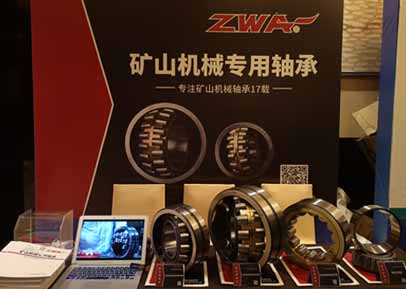
The accuracy, performance, life and reliability of the bearing play a decisive role in the accuracy, performance, life and reliability of the host. According to the different friction properties of the moving parts, the types of bearing can be divided into rolling bearings and sliding bearings.
the outer ring, cage, rolling element, inner ring.
The inner ring is usually tightly fitted with the shaft and rotates together with the shaft.
The outer ring is usually matched with the housing hole of the bearing seat or the shell of the mechanical part to play a supporting role.
The rolling elements are evenly arranged between the inner and outer rings with the assistance of the retainer.
Its shape, size and quantity directly determine the bearing capacity of the bearing.
The cage separates the rolling elements evenly and guides the rolling elements to move on the correct track.
ball, spherical roller (symmetrical/asymmetrical), cylindrical roller, needle roller, tapered roller.
ferrous metal cages, non-metallic cages, non-ferrous metal cages.
① Miniature bearings-bearings with a nominal outer diameter range D <26mm;
② Small bearings-bearings with a nominal outer diameter range of 26 ≤D<60mm;
③ Small and medium-sized bearings-bearings with a nominal outer diameter range of 60 ≤D<120mm;
④ Medium and large bearings-bearings with a nominal outer diameter range of 120 ≤ D <200mm;
⑤ Large bearings-bearings with a nominal outer diameter range of 200 ≤D<400mm;
⑥ Extra-large bearings-bearings with a nominal outer diameter range of 400 ≤ D <2000mm;
⑦ Heavy and large bearings-bearings with a nominal outer diameter range of D≥2000mm.
① Deep groove ball bearing, as the most common type, mainly bears the radial load and can also bear a certain amount of axial load. Compared with other types of bearings with the same size, this type of bearing has a small friction coefficient and a high limit speed.
② Angular contact bearings: Angular contact ball bearings have a high limit speed, which can bear radial and bearing loads at the same time, and can also bear pure axial loads. Its axial bearing capacity is determined by the contact angle.
③Thrust needle roller and thrust ball bearings: Thrust ball bearings are separable bearings, with a contact angle of 90°, which can only bear the axial load with a limited low speed.
④ Self-aligning ball bearings, self-aligning ball bearings: Self-aligning ball bearings have two rows of steel balls. The inner ring has two raceways, and the outer ring is an inner spherical surface. It has the performance of self-aligning and can automatically compensate for the coaxial error caused by flexural deformation. It is suitable for parts where the support seat hole cannot guarantee strict coaxiality.
⑤ Combined bearing: A combined bearing is a bearing with two or more rolling elements used to bear radial and axial loads or act as an axial limit.
⑥ Other rolling bearings: cylindrical, tapered roller bearings, rubber-coated bearings.

